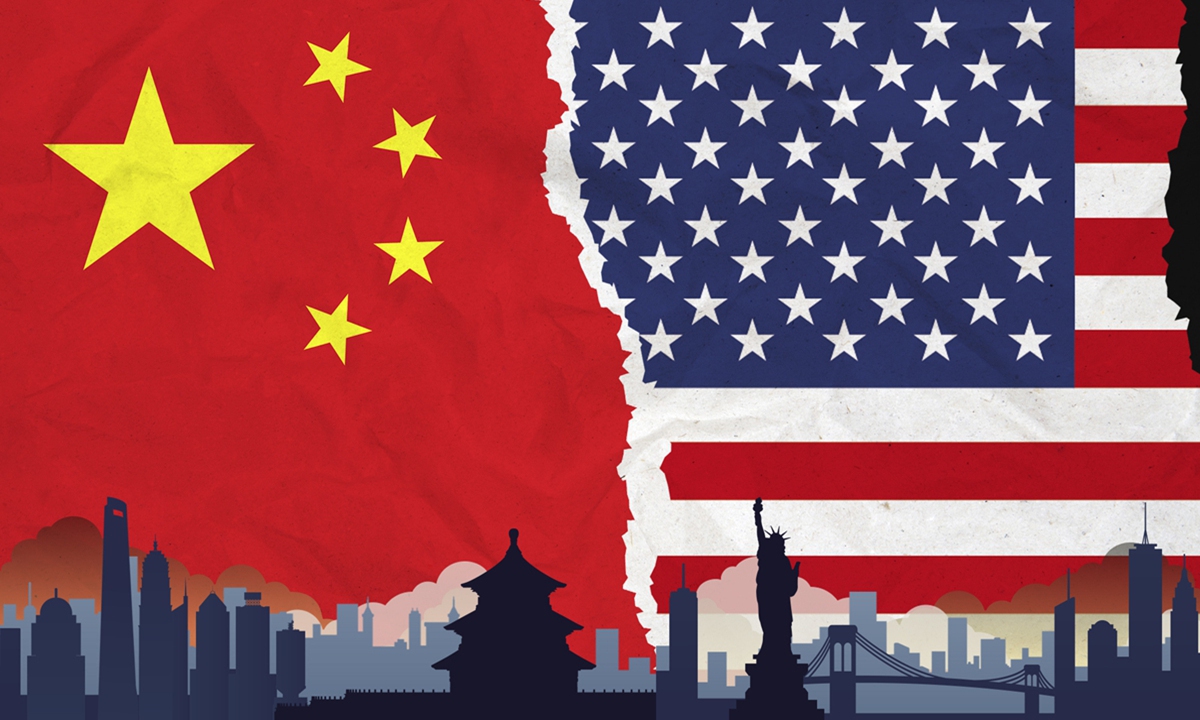
China-US Graphic: GT
China will focus on raising serious concerns regarding the Taiwan question, addressing development rights and strategic security in discussions with the US during National Security Advisor Jack Sullivan’s upcoming visit to Beijing, China’s Foreign Ministry said on Sunday.


